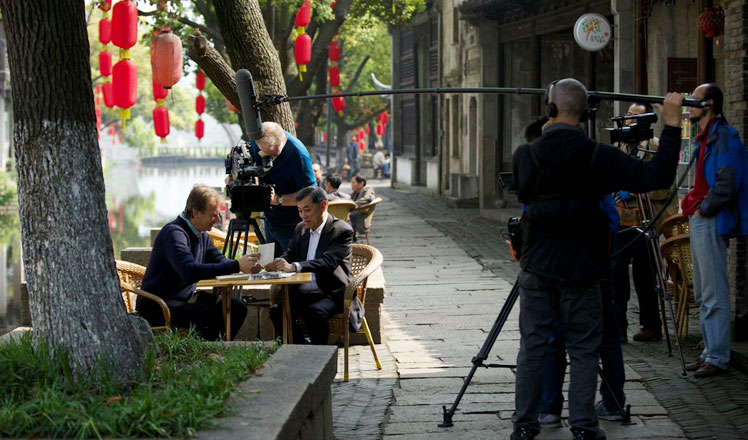Congestion Charge: scientific policy-making is essential
Updated: 2016-01-12 13:35
By Wu Zheyu(chinadaily.com.cn)
|
|||||||||||
When the head of the city of Beijing’s Traffic Committee, Zhou Zhengyu, announced a plan to take serious steps to deal with the city’s traffic congestion for the coming year, on Dec 3, 2015, it got a quick response from the public,no doubt cause there was a lot of personal interests involved.
But at the same time, equality and efficiency are at the center of the debater, nobody can deny the sense of the congestion policy, as long as it takes off some of the traffic pressure with a balance between competing factions while ensuring fairness among different groups of people. Those who endorse the plan tend to cite other countries’ successes with the program, for example Switzerland and Japan, whose governments already have congestion charges as part of their policies and have been effective in controlling the traffic flow in areas suffering from traffic jams during peak hours.
The key to this approach is simple: increase the cost of individual car use and force more people to use public transportation. Those who are suspicious of this policy tend to point to their concern over who assesses the congestion charges because they say it’s difficult to prove the necessity to charge certain drivers during at certain times of the day. Certainly, a lack of convincing polls that allow the public to voice their opinions on the charges makes this issue even more controversial, if the suggested policy can’t win public support, the obvious conclusion is that the authorities are imposing their own will on Beijing drivers.
Meanwhile academics have been studying congestion charges in urban centers in a systematic way from every angle - feasibility, specific hours, rates, support measures - which may prove vital to the efficiency and implementation of the policy, since many people care a lot about how experts view the aspects and how the controls work at a preliminary stage. Unfortunately, the policy proposal lacks an authoritative evaluation system for analyzing China’s traffic congestion.
So, who’s involved? Well three parties -- the users and abusers, the administrators, sociality and its impact -- and the ideal charging scheme would benefit all three. The authorities have a responsibility to explain any proposal they come up with in a logical way, for example, how they figure the efficiency and what kind of controls they are considering. In this, a more reasonable, overall policy, with the people taken to be the major stakeholders and the possible consequences could definitely help with a more mature decision and fewer complaints if there is a negative outcome.
There is one area where most experts agree on: congestion charges can only function as a temporary solution in Beijing, with its overburdened traffic system, while the fundamental problem is with the roads and highways and public transportation and increased investment on them. Better management is clearly needed, since our government is supposed to be service-oriented. Stronger support cannot be neglected. People’s view of the need for better public transportation can be influenced by how pleasant the experience is for users with more money.
In any case, the debate over whether or not to charge for congestion would be more meaningful if the authorities can show the public a more feasible, scientific, and efficient policy in the process instead of just some closed discussions by officials, so that the public are treated as the reasonable individuals that they are with the capacity to think independently, and to help them help society by letting them vote on the best plan for the benefit of the greater number. And, anytime they consider proposals that involve public matter that concern all the people, the authorities should let the public get more involved in the overall planning and decision-making. Reasonable individuals have the capacity to submit a proposal for serious consideration.
Related Stories
Beijing takes action to ease its thick traffic congestion 2016-01-04 10:17
A sensible solution to ease traffic congestion in HK 2015-12-23 09:17
Proper use of congestion fee can cut traffic jams 2015-12-15 08:04
Will a congestion fee work for Beijing? 2015-12-10 09:20
Today's Top News
China's growth envy of developed world
Foreigners find hard to buy China's rail tickets
Rags to riches saga underlines China's transformation
Leaders address Iran's thirst for growth
UK's interest in China boosted by BBC TV series
Global push
AIIB chief vows to run clean, lean, green institution
'More Europe' to deal with 'triple crisis'
Hot Topics
Lunar probe , China growth forecasts, Emission rules get tougher, China seen through 'colored lens', International board,
Editor's Picks

|

|

|

|

|

|






